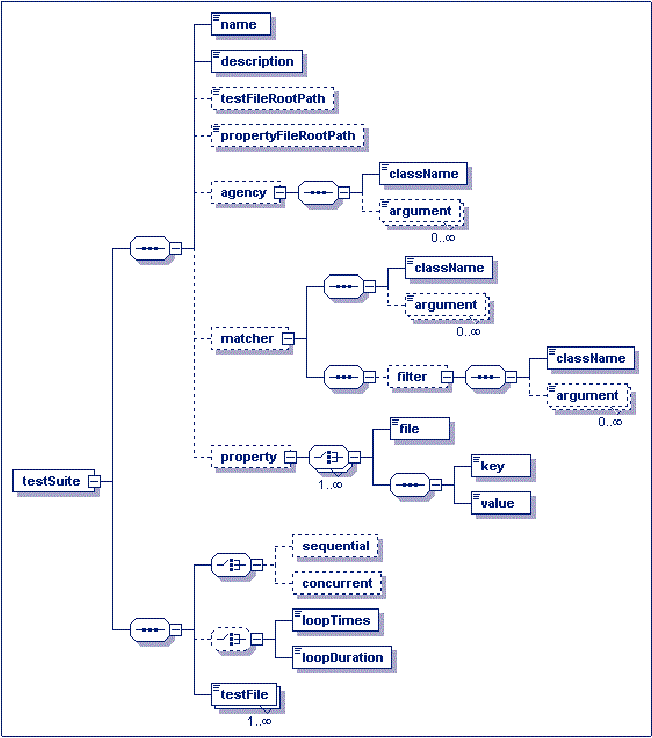|
|
|
EXT
|
TestSuite
Schema Diagram

Description
A TestSuite has all of the characteristics of an AbstractTest;
in addition, a TestSuite adds the following information:
| Element | Status | Purpose |
| Execution specifier | Optional | If used, the execution specifier must be one of the following
elements:
The default mode is sequential. |
| Looping specifier | Optional | If used, the looping specifier must be one of the following
elements:
The default is to execute each test exactly once. |
| testFile | Required, Repeatable | The name of a file containing either a TestCase
or another TestSuite. Can be any string that ends with ".tst"
or ".ste" (case insensitive). Each test suite is expanded and processed
for handling by the specified operative. If the name of the file is not
an absolute reference, then the file is expected to be located somewhere
in relation to the last defined testFileRootPath, or "." if none
is supplied. |
Test Files
All test types (TestCases, TestSuites, and
TestScenarios) are defined using XML. The file extension (last
four characters) of the XML filename identifies the contents, according to the
following mapping:
|
Case sensitivity is NOT enforced, so filenames may be specified with any combination of upper- and lower-case letters.
While these extension names are not strictly required by the parser for successful
execution of the tests, they are useful from the perspective of being able to
quickly distinguish between one kind of object and the other, so for this reason,
the naming convention is enforced – that is, a file with a particular extension
is expected to contain exactly one object of the appropriate type (TestCase,
TestSuite, or TestScenario, depending on the extension);
if it does not, an error is generated.
|
|
|
EXT
|